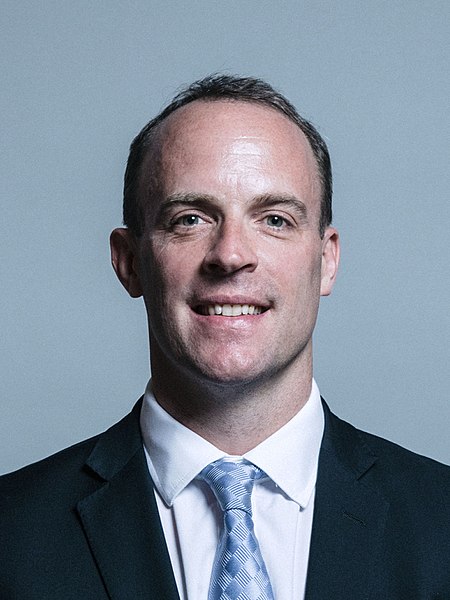11 November 2020 | OPINION
The Conservative Party stormed to victory last year on a pledge to level up the Midlands and the North. In no area is this more important than upskilling the forgotten 50% who do not go to university. Nearly all media coverage on post-16 education is focused on higher education, not further education. If the government is to fulfil its pledge to level up Britain, we need to focus on this neglected half of young people.
Never mind Tony Blair’s 50% university target – we should be aiming for a similar target for vocational education. Speaking as a careers adviser for a large children’s home provider, the majority of our young people wish to go down the vocational path and increasing opportunities in this area could transform their lives.
Nothing summed up the invisibility of the FE sector to the mainstream media more than the Auger Report of May 2019. Auger’s remit, crucially, was to look at how post-18 education can meet the country’s social and economic needs. The majority of the report was on the non-university sector, but all the headlines focused completely and totally on the higher education sector, with the proposal of a cut in tuition fees.
This coverage was typical of our national obsession with universities and was, once again, neglectful of the forgotten 50%. As Auger stated: “We discovered that England is a nation of two halves when it comes to post-18 education. In 2018, over £8 billion supported 1.2 million students in English universities. Just £2 billion supported 2.2 million adults and further education students.”
What does this mean in practice? FE colleges used to teach 28 hours a week and now they only have funding for fewer than 15 hours. So when employers complain that college kids ‘aren’t as skilled as they used to be’, it is because they are getting nearly half the hours’ tuition. Bricklayers were being taught for 28 hours a week 30 years ago, and now this is less than 15 (including English and Maths).
This extraordinary difference in funding led Boris Johnson’s Conservatives to pledge much-needed funding into further education. This is now being championed by Gavin Williamson and the excellent Gilligan Keegan, the MP who left school at 16 to do an apprenticeship and is now the Minister for Skills and Apprenticeships. Even with all the challenges of the pandemic, the forgotten 50% are clearly a top priority for this Government, as positive policies have been introduced to tackle youth unemployment.
The biggest headline grabber has been the Kickstart Scheme – a £2 billion investment in hundreds of thousands of jobs for 16-24 year olds on Universal Credit. £2,000 apprenticeship grants are being given to those employers who take on young people under 25. Crucially, more money is being put into traineeships. Traineeships get little coverage, but they are an important first step for many who are furthest away from the job market.
Alongside the Kickstart Scheme, apprenticeships and traineeships, the recently introduced T Levels promise to create a parity of esteem with A Levels. T Levels were developed in collaboration with employers and businesses so that the content meets the needs of industry and prepares students for work, further training or study. T Levels offer students a mixture of classroom learning and ‘on-the-job’ experience during an industry placement of at least 315 hours.
Compared to our European neighbours, we see far fewer young people receiving high-quality vocational education, e.g. in Germany 60% of young people complete some form of vocational training. T Levels have been designed to upskill those who do not choose the university route. It was also great to see that T Levels will be available for adults as part of the Government’s ‘lifetime skills guarantee’. This was announced at the same time as the Prime Minister promised a fully-funded college course to all people over 18 in England without an A level or equivalent qualification.
The Government has made a great start in tackling the inequalities between academic and vocational education, but there is so much more that can be done. City and Guilds have predicted that only 30% of all jobs will require a degree by 2022. This means that we need to continue to put incentives in place to ensure more young people choose the vocational, rather than the A Level route.
To really promote T Levels in the coming years, why don’t we offer grants to students during their work industry placement? To show young people the value of earning money from a young age, why don’t we pledge that 16-21 year olds who complete apprenticeships pay no income tax or national insurance?
This sounds expensive, but with many apprentices not earning much above the income tax threshold already, the symbolic value very much outweighs the financial cost. Whether a young person chooses T Levels or an apprenticeship – either way, there will be a work dividend.
This is the first Government in years that is focused on supporting those who choose a vocational route rather than university. With the narrative changing and most people now understanding that the balance needs to shift, there is a real opportunity to build upon the positive policy announcements of recent months.
We need schools to start bragging about higher-level apprenticeships, not just the amount of pupils they have who go to university. We need employers to embrace the vocational agenda, especially when uncontrolled immigration is due to end and the importance of training up our young people will be greater than ever.
We need the Government to continue to seize this agenda and not change course on levelling up the country.
























